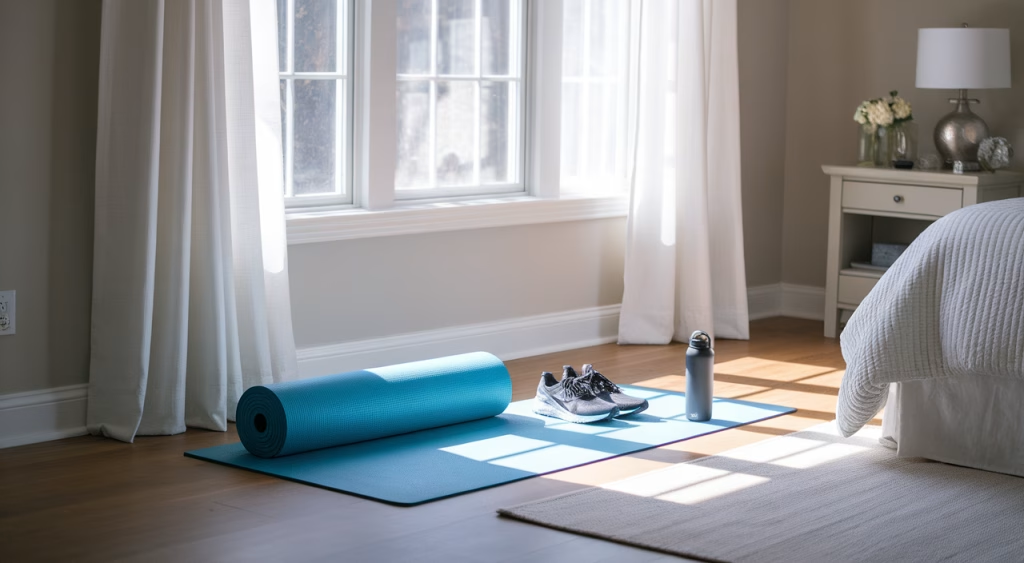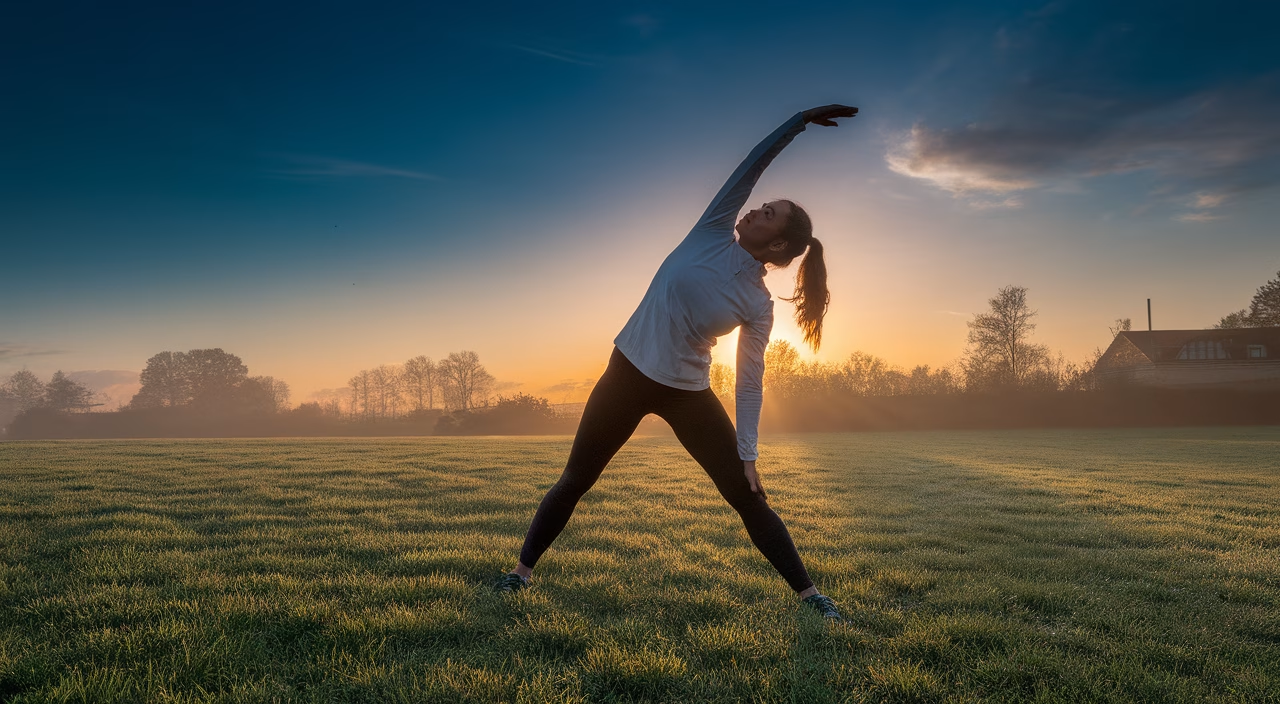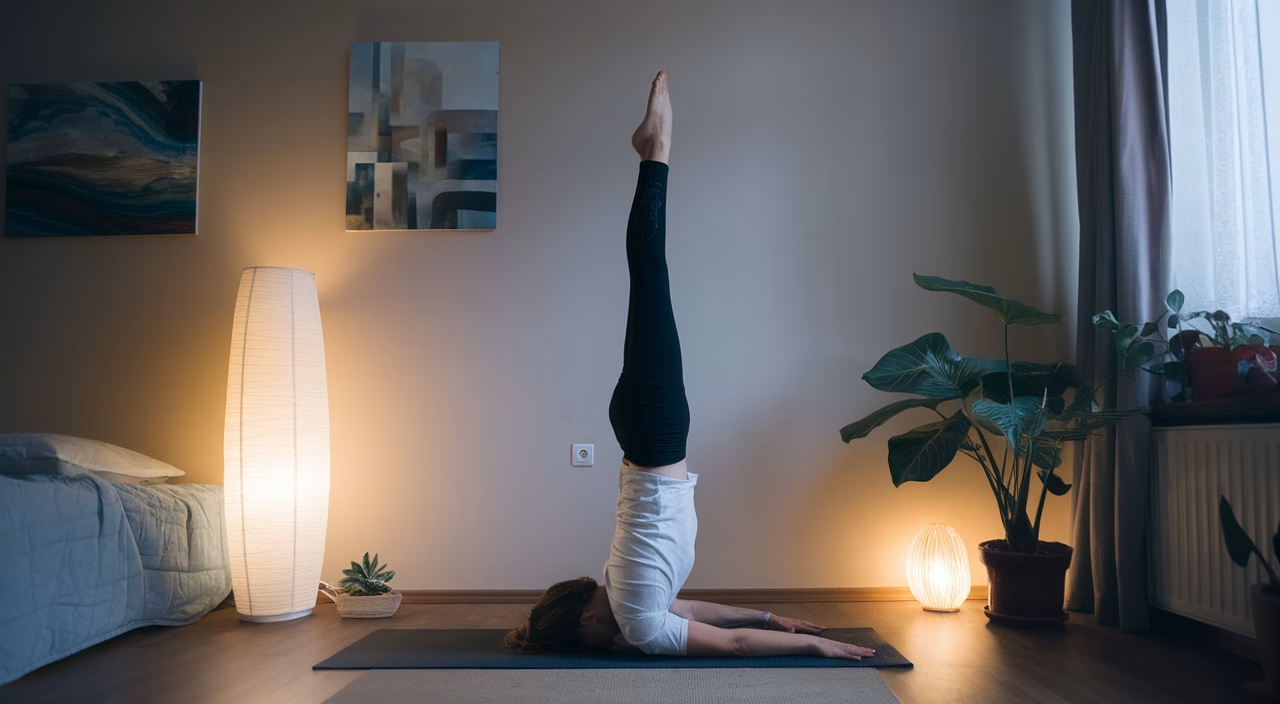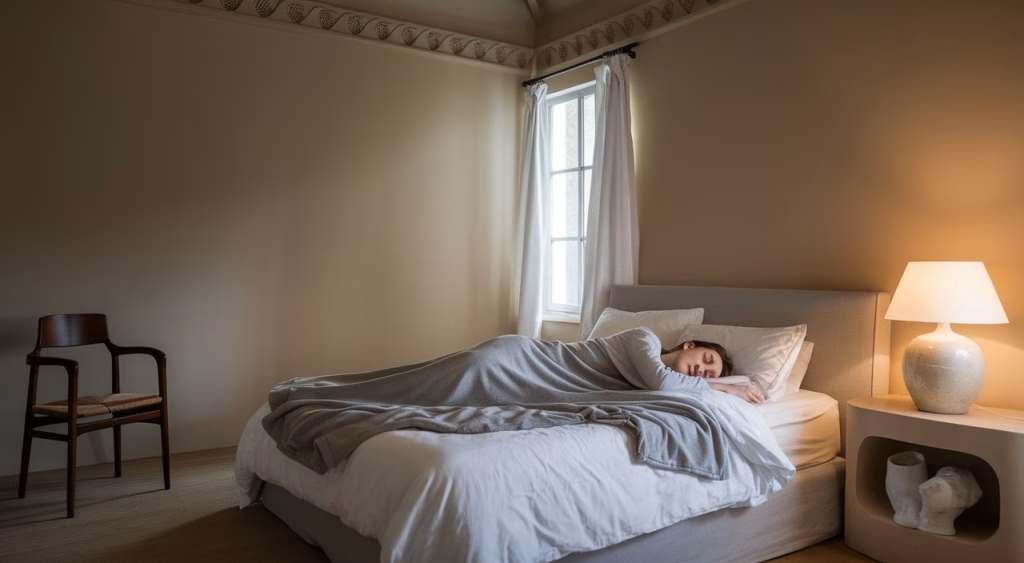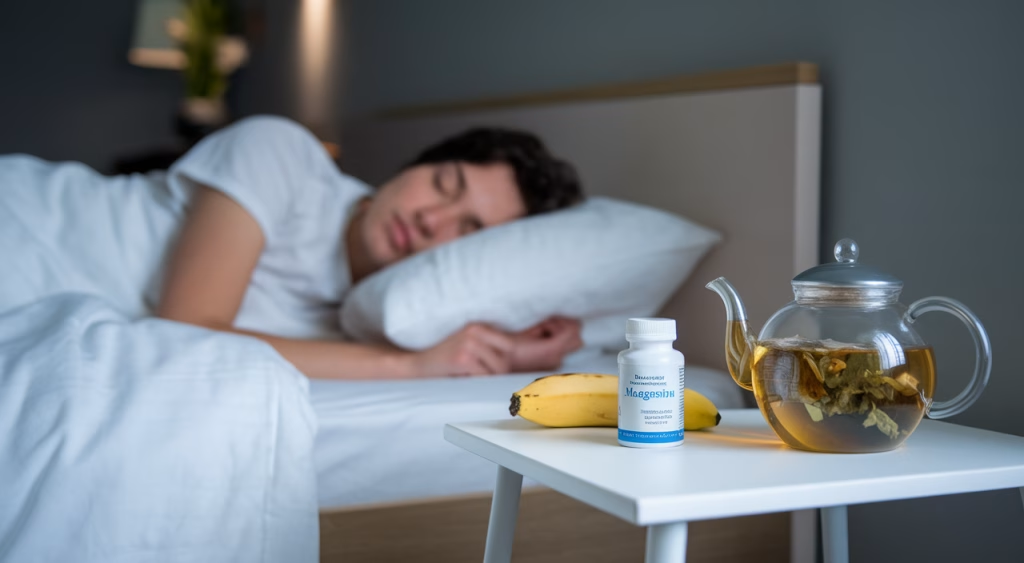Can Exercise Really Improve Sleep Quality?
Yes — when chosen wisely, both timing and type of exercise can significantly improve the quality of sleep you get each night. But the “when” and “what” often matter just as much as the “how much.” Understanding the impact of exercise on sleep can transform both your fitness routine and your rest.
TL;DR – Summary
- Exercise boosts sleep: Regular physical activity helps regulate your body’s internal clock and reduces the time it takes to fall asleep.
- Timing of exercise matters: Morning workouts generally enhance deep sleep cycles, while gentle evening workouts like yoga may help you unwind.
- Choose the right workout: Low-impact exercises and structured routines like yoga, Pilates, and light stretching improve restfulness without triggering overstimulation.
- Be consistent: Aim for moderate intensity workouts 4–5 times a week for maximum sleep benefits.
- Customize for your body: Listen to how your body responds to different activities and adjust the timing and type accordingly.
Understanding the Impact of Exercise on Sleep Quality
Ever noticed how a busy, active day leaves you more naturally tired by bedtime? That’s no coincidence. Exercise and quality of sleep share a powerful connection — when done right, physical activity isn’t just good for your heart and muscles, it also signals to your brain that your body has exerted itself and deserves rest. It elevates core body temperature and increases melatonin release as the body cools, naturally preparing your system for deeper sleep quality.
What’s crucial for recreational exercisers to understand is this: exercise regulates your circadian rhythm — your internal clock that controls when you feel alert versus sleepy. When your workout habits align with this rhythm, better sleep quality often follows.
Timing Matters: Late-Night vs. Morning Workouts
Not all workout times are created equal when it comes to promoting restful sleep. The timing of exercise can dramatically affect your sleep quality. Let’s compare morning and evening sessions.
| Workout Timing | Impact on Sleep |
|---|---|
| Morning (6–9 AM) | Boosts sleep pressure and resets circadian rhythm; ideal for deep sleep benefits |
| Afternoon (12–4 PM) | Improves physical performance without disrupting sleep cycle |
| Evening (6–9 PM) | Can support relaxation if low-impact (like yoga); intense workouts may delay sleep onset |
Avoid high-intensity training within 1–2 hours of bedtime. Why? Because it spikes adrenaline and core body temperature — the very things you don’t want lingering when you’re trying to achieve quality sleep.
Choosing the Right Types of Exercise for Better Sleep
The type of exercise you choose can either become your sleep quality’s best friend or its worst enemy. Different exercise types have varying impacts on your ability to fall asleep and stay asleep. Let’s explore how different styles stack up.
- Low-impact exercises: Walking, cycling, and swimming are easy on joints and help lower cortisol levels, supporting better sleep quality.
- High-intensity interval training (HIIT): Effective for fitness, but not ideal late in the day due to adrenaline spikes that can interfere with sleep.
- Yoga and Pilates: Promote relaxation and mindfulness — perfect for wind-down routines and improving sleep quality.
- Resistance training: Encourages deep-wave sleep due to muscle recovery demands.
If you’ve ever ended a yoga session in savasana and felt like drifting off right there on the mat — that’s your parasympathetic nervous system kicking in. That’s the zone you want at bedtime for optimal sleep quality.
Implementing Exercise Strategies for Improved Sleep
Low-Impact Exercises for a Restful Night’s Sleep
For recreational exercisers dealing with restless sleep or insomnia, low-impact exercises might be your secret weapon for better sleep quality. These routines gently elevate your heart rate, engage muscles, and most importantly, allow the body to relax instead of revving it up.
Try this evening routine to enhance your sleep quality:
- 15 minutes of brisk walking after dinner
- 5 minutes of gentle stretching (hamstrings, shoulders, hips)
- 2–4 rounds of deep-breathing abdominal breaths
Done consistently, this sets a peaceful physical and mental tone before bed, supporting better sleep quality.
Enhancing Sleep with Yoga
Yoga doesn’t just stretch your hamstrings — it stretches your mind into a calmer, more restful state that promotes quality sleep. Poses like Child’s Pose, Legs-Up-The-Wall, and Supine Twists ease physical tension and quiet the nervous system. Even 10–15 minutes before bed can signal the body to shift gears into sleep mode.
Try combining yoga with box breathing (4 seconds inhale, 4 hold, 4 exhale, 4 hold). This technique has been shown to reduce heart rate and improve overall sleep latency, especially for recreational exercisers who struggle with sleep onset.
Interval Training and Its Effect on Sleep
HIIT (High-intensity interval training) brings a wealth of fitness benefits. It enhances cardiovascular health, burns calories, and boosts endorphins. But regarding the impact of exercise on sleep, its effects depend heavily on timing.
- Morning HIIT: Excellent for setting your circadian rhythm, improving mood, and enhancing sleep quality later that night.
- Late-night HIIT: May cause alertness spikes, making it harder to wind down and negatively affecting sleep quality.
If you love interval workouts, simply schedule them earlier in the day — try wrapping them up by late afternoon to protect your sleep quality.
Cost Guide: Free and Paid Fitness Options to Support Sleep
| Option | Type | Cost Range |
|---|---|---|
| Stretch at Home | Bodyweight/guided app | $0 |
| Group Yoga Class | In-person/virtual | $10–$25 per session |
| Fitness App Membership | On-demand programs | $5–$30/month |
| Personal Training | Customized workouts | $30–$100/hour |
Final Thoughts
Sleep quality and exercise share a deeply intertwined relationship. If you’ve struggled with wakeful nights or groggy mornings, understanding the impact of exercise on sleep and adjusting your workout approach might hold the key to lasting restfulness. By optimizing the timing of exercise, frequency, and type of exercise, you don’t just chase fitness goals— you actively build stronger, sounder sleep quality.
Your perfect sleep-supportive routine won’t look exactly like someone else’s. As recreational exercisers, we need to tune into our bodies, test what times and types of exercise leave us feeling genuinely refreshed, and adjust as needed. And remember — rest is part of training too. Prioritize sleep quality every bit as intentionally as your workouts, and your body (and brain) will thank you.
Frequently Asked Questions
Does exercise affect snoring?
Yes, regular physical activity can help reduce snoring, especially by decreasing weight around the neck area and strengthening respiratory muscles, which contributes to better overall sleep quality.
Is it bad to work out right before bed?
High-intensity workouts right before bed may disrupt sleep quality. The timing of exercise matters — opt for lighter activities like yoga or stretching instead for better sleep.
What’s the best time of day to exercise for sleep?
Morning or early afternoon workouts are generally best for supporting deep, restorative sleep quality. This timing allows your body to naturally wind down by bedtime.
Can yoga really improve my sleep?
Absolutely. Yoga helps activate the parasympathetic nervous system, reducing stress and helping the body wind down for sleep, making it an excellent type of exercise for sleep quality.
How often should I exercise to improve sleep?
Aim for at least 30 minutes of moderate activity on most days. Consistency matters more than intensity when it comes to the impact of exercise on sleep.
What kind of exercise helps with insomnia?
Low-impact exercises and mind-body workouts like tai chi, yoga, and walking are ideal types of exercise for easing insomnia and improving sleep quality.
Should I avoid all cardio before bed?
Not necessarily, but intense cardio late at night may delay sleep onset and affect sleep quality. Try gentler movements before bedtime, as the timing of exercise is crucial.

